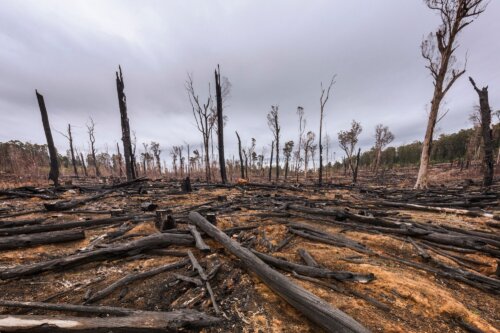The Albanese Government has just introduced its first round of legislation for its long-awaited national nature law reforms to Parliament – and it leaves a lot to be desired.
The new legislation establishes Environment Protection Australia, a new federal regulator that will be responsible for assessing, approving and regulating projects.
Introducing an independent federal EPA has been a core ask from environment groups, experts and communities. But an EPA alone can’t turn around Australia’s extinction and climate crises.
The new EPA proposed by government lacks accountability and will be vulnerable to the same powerful influences that have undermined good environmental decision-making in this country for too long.
A strong EPA needs to:
- have integrity measures built in to deliver on the government’s commitment to restore community trust in the system
- be led by an independent board of qualified members, not one boss appointed on the Minister’s recommendation as proposed in the Bills
- have clear objects and duties that guide its work to fearlessly enforce our environment laws in nature’s best interests
Long overdue environment law reforms
Reforms to Australia’s current environment laws are long overdue. Environment Protection and Biodiversity Conservation (EPBC) Act 1999 – Australia’s national framework of environmental legislation – is broken, out-dated and full of holes.
John Howard introduced these laws a quarter of a century ago. Since then, the state of Australia’s environment has plummeted. Under this broken system:
- Australia’s Environment Ministers have approved 740 coal and gas mines, without assessing their harm to our climate.
- Australia has one of the worst extinction rates on Earth. Even koalas are at risk of extinction because of habitat destruction.
- Australia has become a global deforestation hotspot alongside Brazil and Borneo.
The Albanese Government’s decision last month to delay the reforms in favour of a fragmented, piece-by-piece approach means we face an indefinite wait for new laws to address Australia’s shocking extinction crisis.
It means legislation limbo for the laws we so urgently need to reign in rampant logging and land clearing, to ensure climate change is properly factored into decision making, and to strengthen protections for animals on the path to extinction.
Instead of baby steps and leaving the hard stuff until later, our government needs to take bold action and deliver urgent reforms to turn around our climate and extinction crises.
Here are the three priorities for urgent amendments to the current EPBC Act that can take concrete steps to improve protection for nature and our climate now, while we wait for holistic reform:
Australia is a global deforestation hotspot, and habitat destruction is the key driver of extinctions across this continent. Companies and developers are getting away with cutting down forests and bulldozing land in areas with clearly mapped, vital habitat for threatened wildlife.
A new EPA can help oversee rampant deforestation and land clearing, but it must be alongside targeted reform of the EPBC Act to remove exemptions for deforestation and compel impact assessments of proposed land clearing.
Amendment is needed now to address the enormous failure of our current laws to halt the deforestation crisis in Australia.
The exemption from the EPBC Act for native forest logging, provided by Regional Forest Agreements, must be removed. Currently, RFAs exempt native forest logging from the EPBC Act’s ordinary assessment and approval requirements and from prohibitions on actions likely to significantly impact listed threatened species without EPBC approval. By removing the exemption, logging operations would be subject to the EPBC Act’s assessment and approval process.
A new section to compel referral of land clearing proposals is urgently required. It would ensure any plan to clear native vegetation in threatened or migratory species habitat, or in a Greater Barrier Reef catchment area, requires impact assessment under the EPBC Act, and cannot proceed without Federal government approval.
Exemptions for continued uses in the EPBC Act are currently exploited to enable land clearing that has significant impacts on listed threatened species, particularly in Queensland. These exemptions should be removed to ensure proposed native vegetation clearing in threatened or migratory species habitat cannot proceed without an impact assessment, and is prohibited without approval.
Climate change threatens every ecosystem across the continent and widespread and severe effects are already being felt by vulnerable and iconic wildlife.
Yet our current laws do not require decision makers to properly scrutinise the climate risks of proposed projects.
Our new national environmental laws must include an explicit requirement to consider climate change impacts in decision-making and give decision-makers the ability to reject actions based on their climate impacts.
Project assessment should have to consider the total, cumulative climate impacts of a project (or group of related projects), including emissions resulting from Australian gas and coal being burnt overseas (scope 3 emissions).
Habitat is vital for the survival of threatened wildlife.
Our new laws must define environmental impacts that are clearly unacceptable – and require any projects that would create unacceptable impacts to be refused.
This definition would identify unacceptable impacts for each Matters of National Environmental Significance (MNES).
Any significant impact damaging critical habitat for threatened species and ecological communities must be considered an unacceptable impact.




